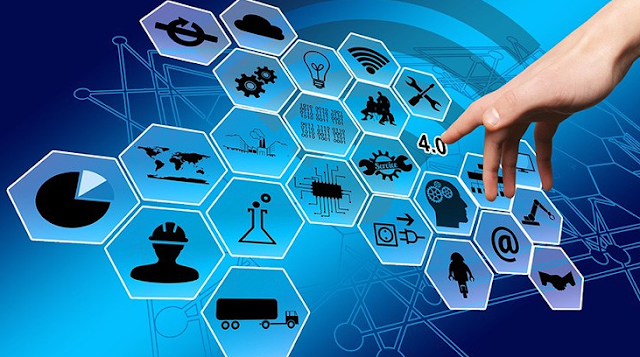Although the Internet has made great strides, it still has a long way to go, and many wonder what the Internet will be like in a few decades . For example, 50 years from now. Also, how will the challenges we now have on our hands be solved: security, privacy, data protection, etc. How will they be solved? Will it be possible to solve these problems and others that will appear over time in a digital world that is in constant change? The answer is not simple, although some experts are already trying to sketch what the Internet will look like in 2070 and what solutions will be given to these problems and even some that have not even been raised yet.
A few months ago, in November of last year, the Pew Research Center published a study on how a group of experts thought digital life would be in the future. Lee Rainie , Director of Internet and Technology Research at Pew , and one of the authors of the study, notes that the answers to the questions that were asked to the experts about how our digital presence would come to define our existence even more in the future were very revealing.
Internet will be more integrated in our life:
Rainie points out that in their answers, the experts spoke of even, " the definition of a human being would contemplate in a given moment the technology available to our bodies and brains ". Also, remember that many of the experts you have spoken with are convinced that current internet devices will not exist, but will be preloaded in our consciousness .
This, according to these experts, will come sooner rather than later. In the next 25 years alone, the systems we employ today to search or use the Internet will be considered little short of antediluvian. So think Judith Donath , researcher at the Berkman Center Klein of the University of Harvard . Donath points out that our digital presence will not be independent of the physical world, but will be integrated into it. By then we will have forgotten about the keyboards, the mouse and the screens.
According to Toby Negrin , CPO of the Wikimedia Foundation , the Network of the future can be compared to electricity, as it will become " an omnipresent supply, something that we hope is always available and around us, interrelated with our daily lives ".
The world around us in the future will be a mixture of "conventional" reality and virtual reality. Also, sometimes it will be impossible to tell which is which. As sees it Mike Liebhold , a Researcher at the Institute of the Future and who was part of Apple's Advanced Technology Laboratory in the 1980s, , he says that in the very near future, everyone will wear augmented reality glasses and use them to interact with their environment. For him, the information will be displayed anywhere, it will even float on water. The web will appear in the real world, not just on screens.
Donath also agrees with this opinion, and stresses that information will be present in everything , and everyone, with whom we come across. Thus, for example, strangers can be identified and information about them can be obtained. Furthermore, in the same way that we subscribe to magazines today, in the future it will be possible to subscribe to different augmented realities.
New ways of communication:
The very idea of a brain interface , very popular among experts, suggests that, if it occurs, all you have to do is think and then that interface will care of automatically take the task , which will probably make communication much easier. The experts who participated in the Pew Center study agree that we are still evolving in terms of forms of communication. In the short term, written messages will disappear in favor, among others, of verbal communications and those established with assistants, such as Siri or Alexa . This will mean that will not be searched, but will be attendees and devices asked questions and the process will be more similar to that of a conversation.
For Donath, technological advances will adapt to this new era of voice communications. Thus, " the headphones will be replaced by invisible implants that will be in charge of modulating everything that is heard, and that sometimes will close the real ambient sound in favor of the virtual one, and others will serve to amplify a nearby voice ".
She and Jones have both pointed out that predictive technologies, such as the ubiquitous autocorrect, will be more accurate, speeding up communications and requiring less thought time. In addition, due to our ability to mix speech with augmented reality, doors will open that will allow us to understand everyone and communicate with them. For Jillian York , Director of international freedom of expression at the EFF , " instead of learning new languages, we will install a translation app that will allow us to translate what we say in real time ".
Apart from this, according to Donath, both small gestures and gaze will provide us with ways to communicate and interact with our environment in a more dynamic way. This will also be the beginning of what is known as "neurointeraction", and which is described as a technology originally developed for those who cannot communicate verbally and which will come to be adopted by all. In his opinion, it will be a mesh of connectivity between devices and human communication in which things will happen through sight and thoughts.
The end of privacy on the Internet
Every time you are asking a virtual assistant for something, you are giving more information about yourself to the company behind said assistant. Everyone who does so sacrifices some of their privacy for more convenience. This, far from being reduced, is going to increase, and the technologies used for this will be increasingly capable of knowing what we want. They will learn from our habits and even anticipate our wishes. This is how companies will earn more and more money: with our data about our person, habits and needs.
This will lead to a change in advertising and marketing of products and services. Ads will be much more personalized and detailed. Of course, this will come at a price, and experts believe that we will sacrifice our autonomy more and more. All in favor of having more comforts.
Advances in health data
The beginning of the biological data revolution has already begun with wearables and connected devices that collect information about our health. Many believe that this is to the benefit of society, as having vast amounts of health data can lead to the ability to generate better health practices. Doctors' ability to know what we eat, how we exercise, and what we do in our daily lives will allow them to implement increasingly personalized programs to meet our health needs.
But as in other fields, the most important thing in this field will be who has the data and how they use it . In general, the experts who have answered the questions posed for the preparation of the study are optimistic in this regard, but they also warn that there is a feeling that on an individual level this can be harmful. There are more and more predictions that information about our health and our genetics could be used to divide us as a species.
Increasing pessimism about the future of the Internet
Many force themselves to be optimistic about the future of the network. Everyone wants to believe that in the future the Internet will bring harmony, better communication, a free flow of information and a healthier world. But all this is accompanied by many doubts and warnings. And with the fact that first we have to solve problems that we already have today so that they are not greater in the future.
To achieve this, among other things, you have to take the time to understand the implications of each new technology and how to approach it in the best possible way. And given that according to Negrin, " we are still at in the adolescence of the Internet ", there is still much to know least and understand all that it implies. For many, it may still be a decade or more before we have a complete picture of all its complexities, both positive and negative.
There is also concern about the ability of governments to manage what comes next in relation to the Internet. Quite a few raise issues related to the fact that governments lack the technical sophistication necessary to regulate, compensate or find appropriate solutions to problems that arise. The answers to the questions and problems that arise, in addition, should be global in many cases, and should give unified answers . Local responses will not help, but will have to be put in place international agreements and treaties global.
On the other hand, there is considerable fear that governments , especially the most authoritarian ones, will use new technologies for their own benefit . Furthermore, there is less and less hope that information can remain free. However, in the end, how we relate to new technologies and what the future holds in the new digital age can affect how we behave as humans.
Thus, technology, and therefore the Internet, can be used to improve the human condition, but Rainie stresses that " there is evidence that many will want to use this and other tools to do what humans have always done with those they do not like " . Therefore, there is much to be done to ensure that the Internet is used for good and not just for the benefit of a few.







0 Comments